For Investigators
Welcome, Investigators.
This page serves as a central, actionable resource for University of Louisville investigators to identify, access, and utilize UofL's resources to foster and accelerate high-impact research.
On this page, you will find:
Announcements
Information about the Office of Research & Innovation (ORI)
Navigating Compliance & Regulatory Requirements
Available Labs & Resources
Bioinnovation Groups & Cohorts
LCTRC Core Services
We highly recommend all PIs and research support staff involved in clinical research download the PI Role & Responsibilities Quick Guide.
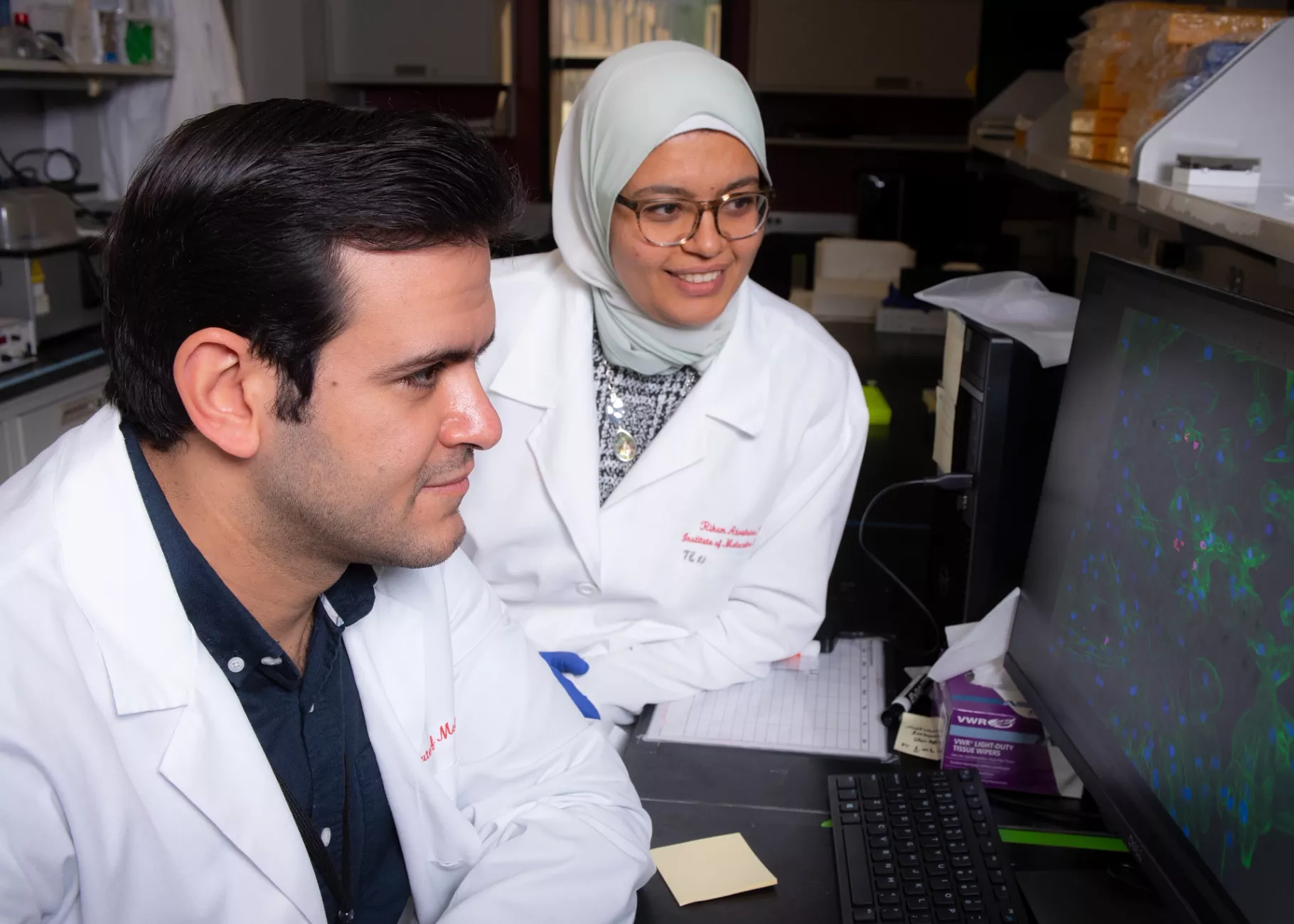
New! Introducing Protocol Builder
This cloud-based platform guides investigators through the protocol writing process, ensuring completeness, accuracy and compliance with regulatory standards. Benefits of using Protocol Builder include instructions and sample text, version control and tracked changes capability, informed consent templates, and collaborative review tools.
Office of Research and Innovation
The Office of Research and Innovation (ORI) serves as the central office providing comprehensive, overarching support for research activities across the university.

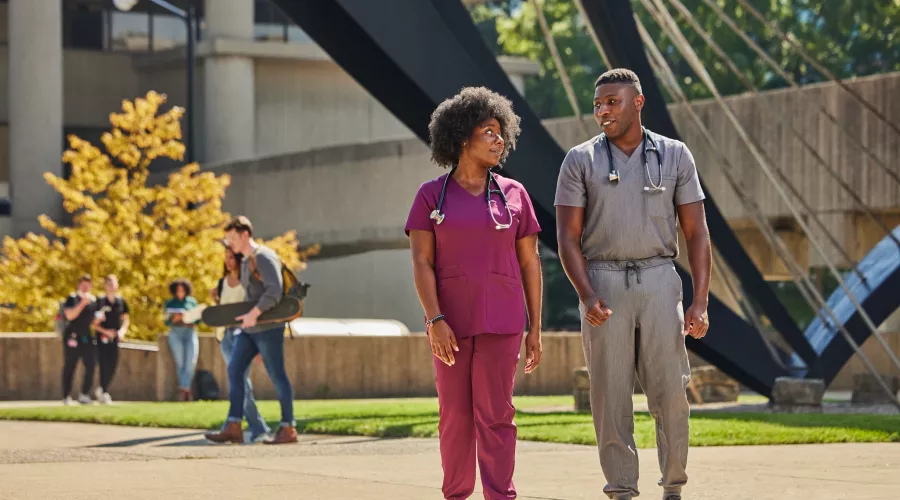
Office of Sponsored Programs
The Office of Sponsored Program Administration (OSPA) handles critical functions related to grant and contract transmittal, signoffs, and adherence to deadlines. This office is also responsible for reviewing data use and sharing agreements. Contact: 502.852.3788 or ospa@louisville.edu

Office of Technology Transfer
Technology Transfer supports innovation and facilitates the commercialization of intellectual property generated from UofL research. Contact: 502.852.2965

Human Subjects Protection Program (HSPPO) / IRB
The Human Subjects Protection Program (HSPPO) / IRB oversees all aspects of Institutional Review Board (IRB) review, informed consent processes, and HIPAA compliance for research involving human subjects. Contact: 502.852.5188 or hsppofc@louisville.edu

Office of Research Integrity
Research Integrity / Conflict of Interest is responsible for ensuring ethical conduct in research and managing potential conflicts of interest. Contact: 502.852.2454
Navigating Compliance & Regulatory Requirements
In this section, you will find tips and links for navigating common compliance and regulatory requirements. PIs must ascertain necessary approvals before any research activities can take place.
- All research studies require IRB approval before a study can begin. Submit a new study for approval using iRIS.
- For contracts and grants, PIs must also enter their project into Cayuse for tracking.

A step-by-step guide to submit a new research proposal for IRB approval using iRIS can be found here.
A step-by-step guide through the entire IRB submission process can be found here.
⛨ Research studies involving ULP, UofL Health Hospitals, and UofL Health Outpatient Centers require approval from the UofL Health Research Office (ULHRO) prior to research being conducted in a UofL Health facility. Email: research@uoflhealth.org
⛨ Research studies conducted at Norton Healthcare facilities must obtain site approval from the Norton Research Institute prior to starting. Email: ro@nortonhealthcare.org
Active Involvement and Supervision Requirements (clinical trials)
The PI is ultimately responsible, even if certain activities are delegated, and is required to identify and oversee the entire research team, including sub-investigators.
This requires a:
Thorough and Ongoing Informed Consent Process
Accurate and Complete Documentation
Meticulous Management of Finances and Billing
Informed Consent
UofL outlines several types of consent processes, you can find here. Be sure to allocate sufficient time for the initial discussion to ensure participants understand the study commitment, including risks, benefits, and costs. Please note:
- PI sign-off on inclusion/exclusion criteria is required and documents PI knowledge of the enrolled patient.
- Consent forms cannot state there is no cost to participate if the study includes routine visits, tests, or procedures, and investigators must avoid promising free services.
LEGALLY AUTHORIZED REPRESENTATIVE (LAR) & WITNESS FORMS
Who can sign as a LAR: judicially appointed guardian, power of attorney, or a parent/spouse.
NOTE: LARs must be approved for use by the IRB.
- Instances when a participant is cognitively capable but physically unable, please use a witness form instead of a LAR.
- Use of a witness form should be used for participants who are illiterate, visually impaired, or physically unable to sign
- For non-English speaking participants, interpreters must be certified by the UofL Health or Norton facility. Family members cannot serve as an interpreter.
RE-CONSENT
Re-consent is required for changes in participant responsibilities, new safety information, new alternative treatments, pediatric patients turning 18, PI changes, improper initial consent, fluctuating participant capacity, or when mandated by IRB or sponsor.
SITE-SPECIFIC CONSENT RULES
- If consent issues are identified at UofL Health, the study team may be subject to real-time consent review, requiring scanning and emailing the complete signed consent form within 24 hours.
- Norton Healthcare's policy that clinicians, trainees, or clinical staff are discouraged from obtaining consent for interventional studies.
Complete & Accurate Documentation
Principal investigators must maintain a research file and case report for each subject, including consenting documentation, drug/device administration, diagnosis, and inclusion/exclusion criteria information.
Proof of oversight includes signing off on lab work, tests, visit worksheets, CRFs, and exams.
Research orders, visits, procedures, and the Z00.6 code must be documented in Cerner and Epic. (Request EMR access if needed.)
Be cognizant of all interventions to ensure the study is conducted according to written protocols.
Securely store research information in paper and electronic form, adhering to UofL Information Security Policies.
Meticulous Management of Billing & Finances
To effectively manage billing, PI's need to understand the difference between clinically-indicated patient care and research-related items and services.
Billable services at ULP or UofL Health locations are patient care costs and handled through normal revenue cycle operations.
Items completed by providers outside of billable CPT codes can be considered research effort and compensated via grants or ULRF allocations.
Do not hold charge slips, avoid documenting services, or be paid for services already covered by a billable CPT code.
Report all items and services occurring in ULP or UofL Health facilities to the ULHRO billing team to ensure charges are intercepted and directed according to the approved billing plan.
The billing plan and consent forms must be consistent; items listed as "free" in the consent cannot be billed to insurance or the patient.
Laboratories & Resources
By centralizing these resources, UofL removes barriers for individual investigators to access advanced tools and encourages cross-departmental and cross-school partnerships. This directly enables research that might otherwise be impossible due to resource limitations or lack of specialized expertise within a single department. This shared infrastructure accelerates research by maximizing resource utilization and promoting synergistic interactions between diverse scientific fields.

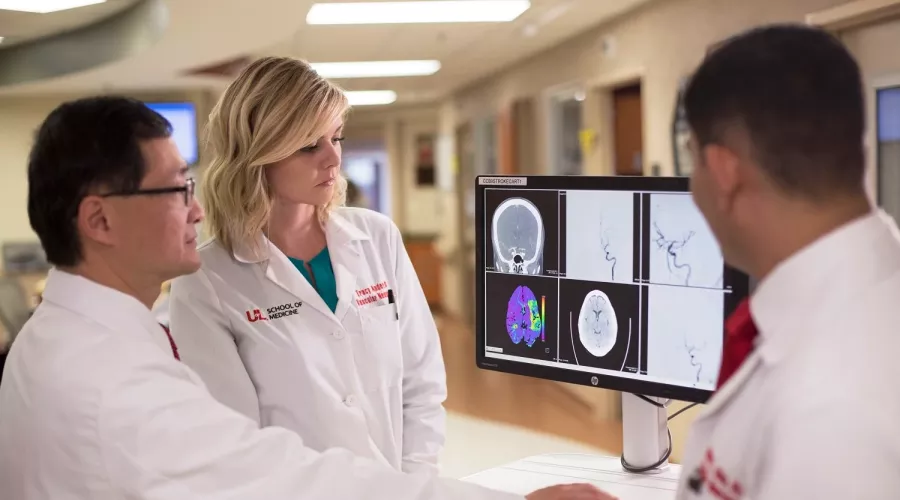
Protocol Builder
This cloud-based platform guides investigators through the protocol writing process, ensuring completeness, accuracy and compliance with regulatory standards.

Kornhauser Health Sciences Library
Investigators at UofL have access to a variety of essential databases and repositories for research and clinical resources through the university library. For further assistance with data management, the Kornhauser Health Sciences Library can be contacted at 502.852.5771.

CORE Laboratories
The UofL CORE Labs are shared biomedical and engineering facilities specifically designed to support collaborative research. These centralized resources provide investigators with access to specialized equipment and expertise that individual laboratories might not possess, thereby fostering efficiency and enabling advanced scientific inquiry across various disciplines.
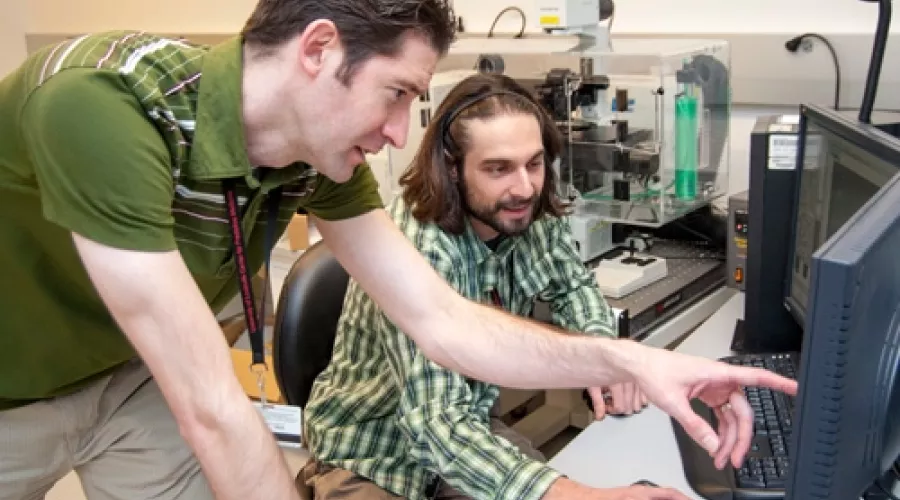
CITI Training
CITI Training is a platform where you can complete research trainings ahead of conducting research. The CITI Program offers a number of required and optional courses, ranging from responsible conduct of research (RCR) training to an introduction to grant writing. Verify your team's training status

Data Management Plan
The Data Management Plan Tool can be used to assist in the development of your data management plans in order to fulfill funder requirements. View examples of Data Management Plans submitted to NSF, NIH, and more. Log in with your UofL email address.
University of Louisville Clinical Trials Unit
The Clinical Trials Unit (CTU) is a central research unit that provides services to investigators, sponsors and research staff conducting clinical research trials involving healthy subjects or patients.
The CTU Outpatient Research Clinic includes:
- five exam rooms,
- four infusion bays, and
- a sample collection room.
Bioinnovation Groups
UofL offers distinct bioinnovation initiatives for researchers. Bluegrass Biodesign is a program for medical and engineering students to collaborate on developing new medical devices. Mid-South REACH is an NIH-funded hub that supports the commercialization of biomedical innovations across a four-state region. Finally, the Clinical Research Innovation Initiative provides technical assistance and training on using wearable technologies in clinical trials.
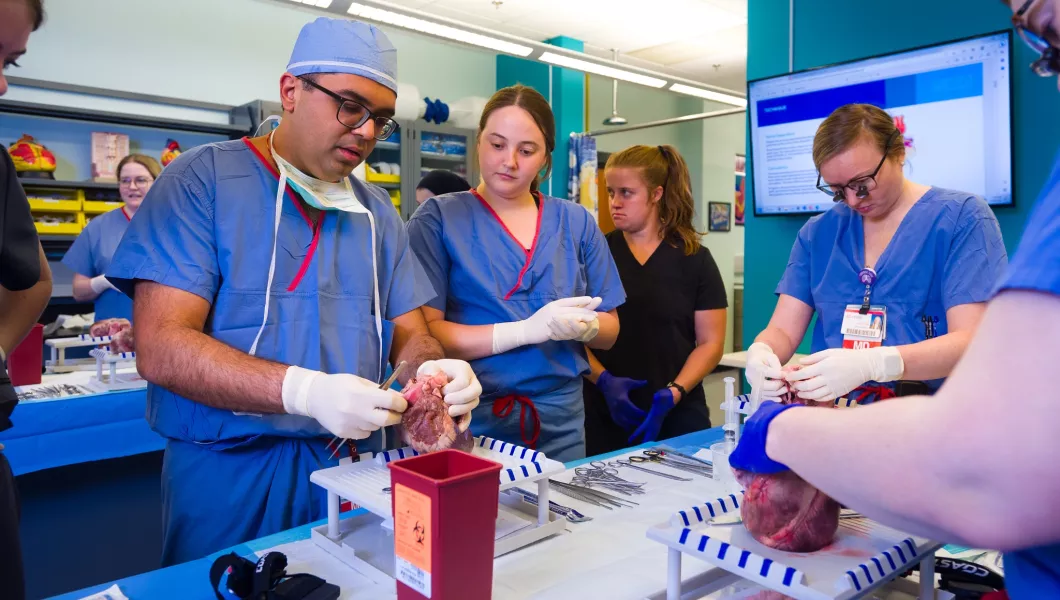
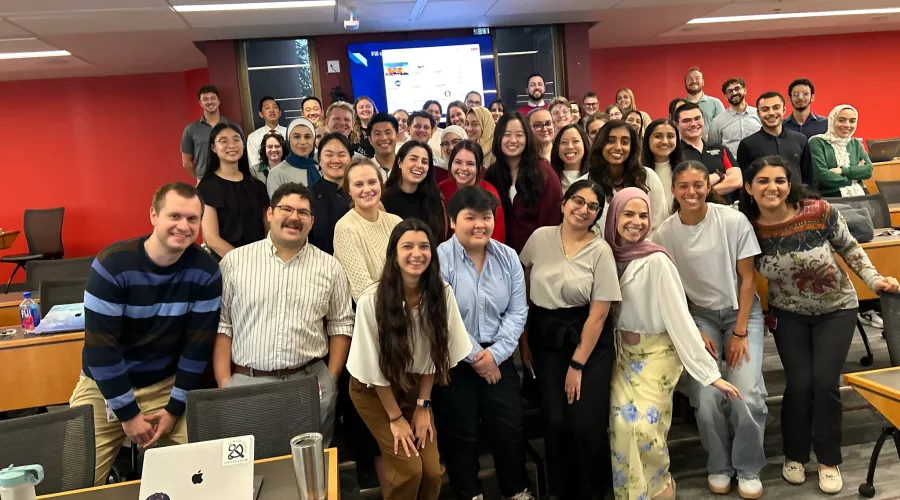
Bluegrass Biodesign - Center for Health Process Innovation
Bluegrass Biodesign is an accelerated, 9-month biomedical program for medical students. Modeled on the Stanford Biodesign curriculum, it integrates medical and engineering students to identify unmet clinical needs and develop new medical devices. The program includes a curriculum on medical entrepreneurship and the creation of a proof of concept. Applications are open to rising second, third, and fourth-year medical students at the start of the Spring semester.
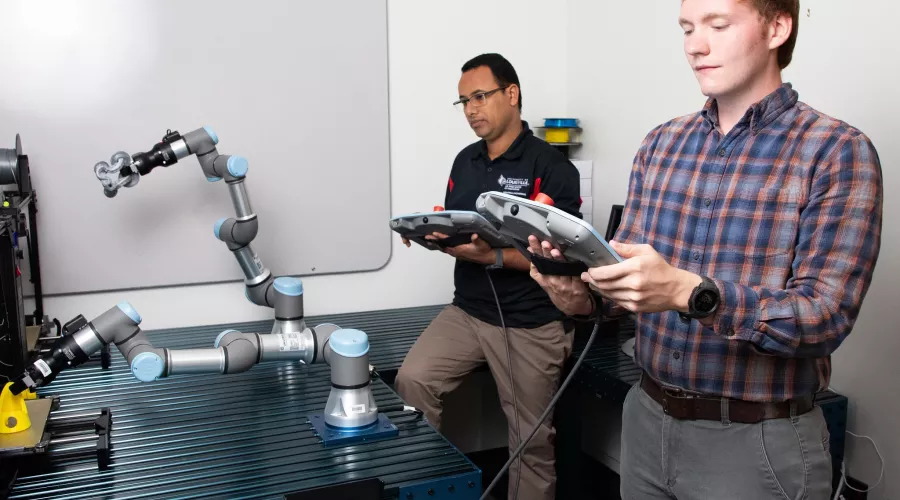
Mid-South REACH (formerly Excite/Kinetic)
Mid-South REACH is a new Research, Evaluation, and Commercialization Hub funded by the National Institutes of Health (NIH) in September 2023. Led by Vanderbilt University, this program is a collaboration with the University of Louisville, George Mason University, and Jackson State University. Mid-South REACH is a product-focused program that provides commercialization education, training, coaching, and strategic feedback to awardees through a milestone-based project management system. It is open to fellows, junior faculty, and faculty involved in biomedical innovation research for commercialization. Apply for the Fall 2025 Launchit Product Innovation Bootcamp.

Clinical Research Innovation Initiative
The Clinical Research Innovation Initiative (CRII) is a collaborative effort led by Dr. Ted Smith to advance the use of wearable technologies in clinical trials. It serves as a clearinghouse for information and provides technical assistance, education, and training to UofL clinical investigators. The CRII partners with the UofL Custom Wireless and Electronics Laboratory and other national research partners. It is open to a wide audience, including principal investigators, research personnel, faculty, and community members interested in using wearable technologies in research. View the recording of the Wearable Devices in Clinical Studies Information Session.
Bioinnovation Video Tutorials
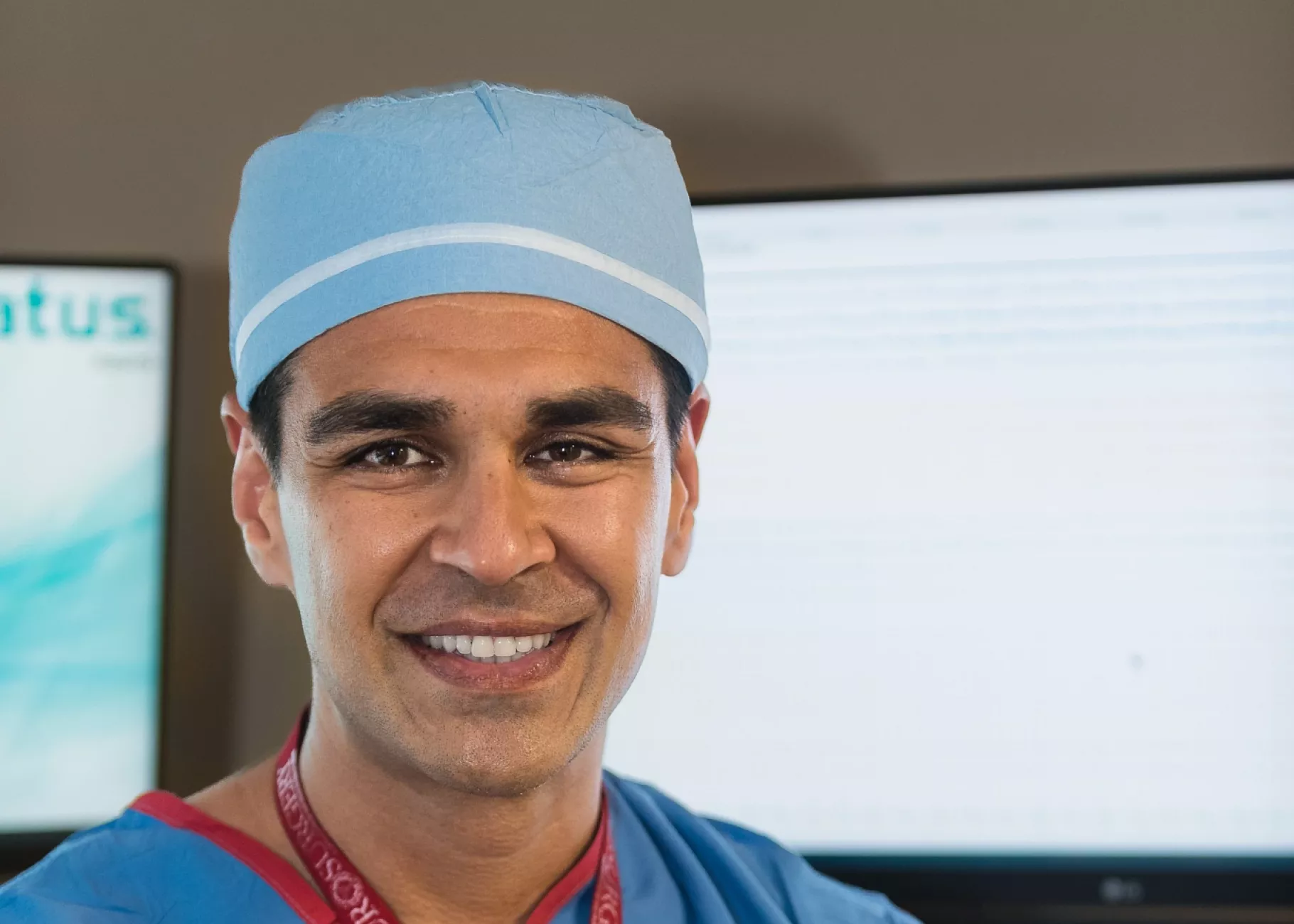
Cohorts for Scientists Seeking Major External Funding
The Professional Development Core of the LCTRC hosts a K Cohort (for those seeking a mentored career development award) and a R01 Cohort (for those seeking an independent researcher award) to assist scholars in achieving major institutional funding.
LCTRC Core Services

Questions
For general questions, please reach out for support.





